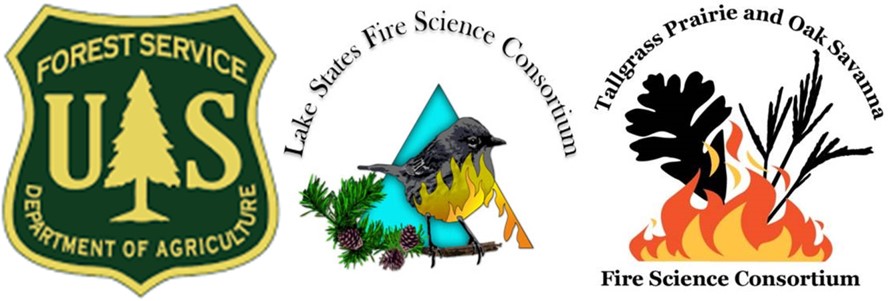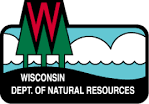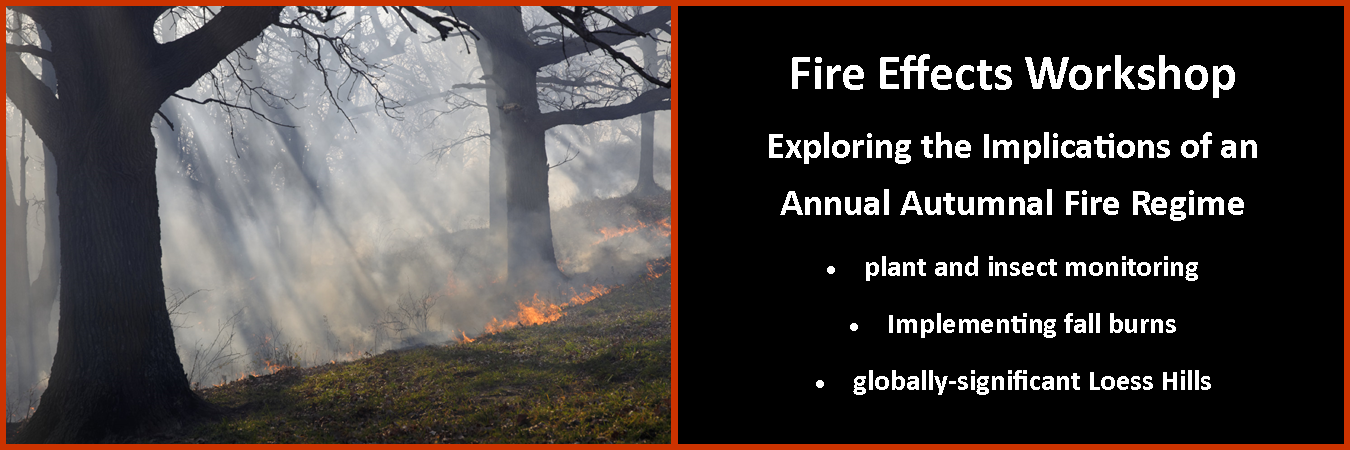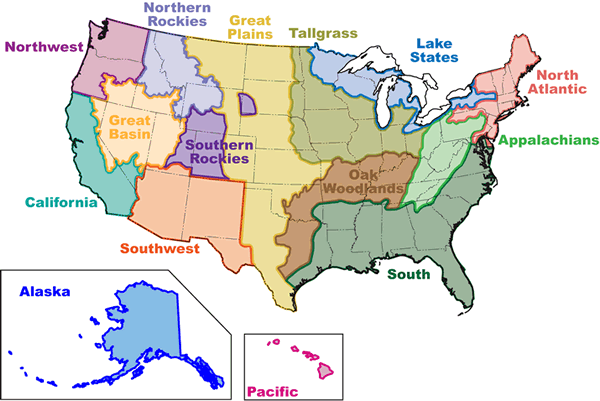Previous Workshops
November 2022
Minnesota Natural Disturbance Forest Habitat Summit
This workshop was available in hybrid format, both online and at the Cloquet Forestry Center in northern Minnesota.
Foresters try to emulate natural disturbance through silvicultural practices, but often nature has other ideas, confounding well-implemented prescriptions. This workshop was a two-day exploration of connections between natural disturbance, wildlife habitat, and forest management. After a review of key concepts in disturbance ecology, speakers focused on fire, wind, and forest management as disturbance agents, with talks from researchers and practitioners on each. The workshop closed with a handful of on-the-ground case studies related to biotic and abiotic natural disturbances.
For more information, visit https://sfec.cfans.umn.edu/disturbance-summit
Planning partners: Sustainable Forests Education Cooperative, American Bird Conservancy, Lake States Fire Science Consortium, and Tallgrass Prairie and Oak Savanna Fire Science Consortium
February and March 2022
Virtual Smoke Tools Workshops
Smoke management and smoke hazards are one of the most important things to plan for and manage when doing a prescribed burn, or to consider during any wildfire suppression. This one day workshop was an active participation “hands-on” virtual workshop where participants worked through exercises using online smoke tools. The topics and tools provide a good introductory workshop for anyone in wildland fire management - those who have not had much smoke modeling and management exposure, or as an excellent refresher for those who have had another smoke course.
Partners
US Forest Service - instructor Trent Wickman, Air Resource Specialist for MI-MN-WI, Eastern Regional Office
Lake States Fire Science Consortium
Tallgrass Prairie and Oak Savanna Fire Science Consortium

February 2022
8th Annual Burning Issues Workshop & Michigan Prescribed Fire Council Annual Meeting
Burning Issues is an annual wildland fire workshop designed to enable land managers, researchers, resource specialists, biologists, ecologists and fire practitioners an opportunity to hear and learn from different areas of expertise in a format designed to identify gaps in knowledge and communication, and work toward solutions to issues that complicate our collective wildland fire work.
Recorded presentations and other resources are available at the Burning Issues 2022 home page.
Feb. 2021
7th Annual Burning Issues Workshop & Michigan Prescribed Fire Council Annual Meeting
Burning Issues is convened by partners to further collaborative fire management and research solutions.
Recorded presentations and other resources from the 2021 workshop are available.
Recorded presentations and other resources are available at the Burning Issues 2021 home page.
August 2019
Oak Barrens Monitoring to Inform Management - Webinar and Field Day
Part 1 - Webinar
Live - 12 pm, July 22 and on-demand (recorded) July 23-Aug. 5
The webinar covered important background information allowing participants to focus on hands-on activities on August 7. The recording is available on our PrairieFireSci channel on YouTube.
Part 2 - Field Day
Aug. 7, 2019, 10 a.m. to 3 p.m.
@ Lawrence Creek State Natural Area, Adams/Marquette County, WI
Presenters:
- Ryan O'Connor, Ecologist, Bureau of Natural Heritage Conservation, Wisconsin Dept. of Natural Resources (contact: ryan.oconnor "at" wisconsin.gov)
- Amy Staffen, Ecologist, Bureau of Natural Heritage Conservation, Wisconsin Dept. of Natural Resources (contact: amy.staffen "at" wisconsin.gov)

Join Wisconsin DNR ecologists for a day to learn about, field test, and provide feedback on a manager-friendly monitoring protocol for oak barrens.
No plots or expert plant knowledge needed! Typically, 1-2 hours per management unit are needed complete the protocol. The monitoring project is designed to support evaluation of oak barrens composition, structure, and condition.
Learning Objectives:
- Identify oak barrens sites with good restoration potential
- Develop restoration goals grounded in sound science
- Adjust management prescriptions over time based on your own monitoring data
February 2019
Fifth Annual Burning Issues Workshop and Michigan Prescribed Fire Council Annual Meeting: Decision-Making for Fire-Dependent Systems
Feb. 5-6, 2019 @ Fort Custer Training Center, Battle Creek, MI
This annual wildland fire workshop is designed to enable land managers, researchers, resource specialists, biologists, ecologists and fire practitioners an opportunity to hear and learn from different areas of expertise in a format designed to identify gaps in knowledge and communication, and work toward solutions to issues that complicate our collective wildland fire work.
More Information and Complete Agenda

Previous Workshops
Using Fire as a Tool to Manage Oak Ecosystems
July 25, 2018 @ Dodgeville, WI
2018 Wisconsin Winter Fire Workshop
Feb. 16, 2018 at the University of Wisconsin - Stevens Point
February 6-7, 2018 @ Fort Custer National Training Center, Augusta, Michigan
This annual wildland fire workshop is designed to enable land managers, researchers, resource specialists, biologists, ecologists and fire practitioners an opportunity to hear and learn from different areas of expertise in a format designed to identify gaps in knowledge and communication, and work toward solutions to issues that complicate our collective wildland fire work.
Burning Issues Workshop 2017: In Sickness and In Health - Addressing Tough Decisions in Applying Fire to Degraded Habitats and Declining Species in the 21st Century
March 1-2, 2017 @ Fort Custer Training Center, Augusta, MI
These sessions are planned with and for the diverse community interacting around fire-related issues, and seek to build the understanding and communication to support further work toward collaborative solutions.
Topics in our plenary panel sessions included
- The “Perfect” Burn: Defining Success
- Monitoring Your Outcomes: Plotting to Get the Data You Need
- Prescribed Fire and Oak Restoration
- Managing for Fire-dependent Wildlife
Exploring the Implications of an Annual Autumnal Fire Regime

June 28, 2014 at Hitchcock Nature Center, Honey Creek, Iowa
Site host:
Chad Graeve, Natural Resource Specialist, Pottawattamie County Conservation, Iowa
Instructors:
- Laura Reich, Wildlife Biologist with the Forest Preserve District of Cook County, Illinois
- Dr. Gerould Wilhelm, Director of Research, Conservation Research Institute
For details, see our workshop flier.
Oak Opening Workshop

Four recorded presentations from this workshop are available by following this link to videos on our Vimeo page: Oak Opening Workshop - Saturday March 9, Eagle WI

